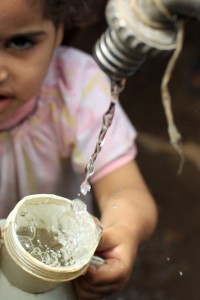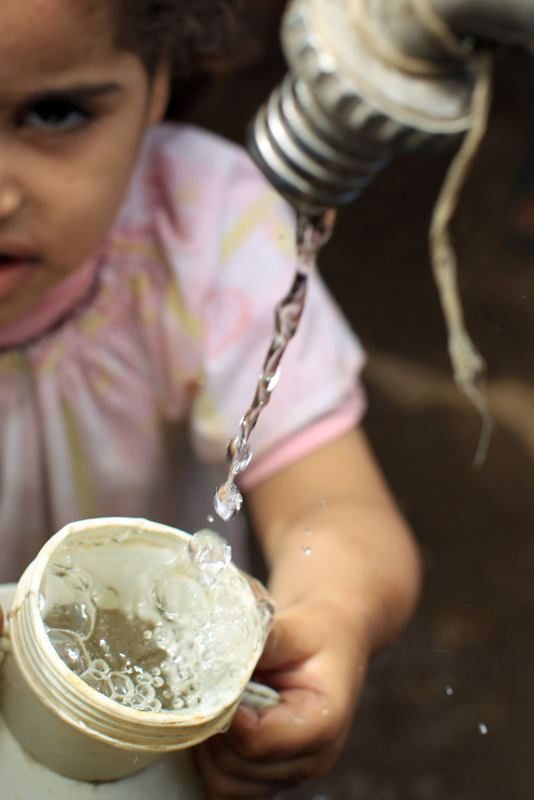
(AFP Photo)
Minister of Environment Khaled Fahmy said a bomb explosion near a petrol line led to water pollution in the lake between Alexandria and Beheira, during a TV interview on Monday.
Fahmy said the explosion led to gas leaking into the pipe which feeds the water stations in the neighbourhood of Ibis, Kafr Al-Dawwar. The incident, which took place few days ago, led to the shutdown of water stations in Beheira for 72 hours, until Tuesday. No cases of poisoning were reported at Beheira hospitals, the preventive medicine director told state-run news agency MENA on Sunday.
Similar incidents of water poisoning have occurred over the past week. Last Tuesday, a large phosphate container spilled its contents into the Nile Water in Qena. The incident has raised doubts among families, officials and media personnel as a potential cause for mass poisonings.
On Saturday, 500 persons were poisoned in the Ibrahimeya district of Sharqeya. After conducting medical examinations on the patients, the initial results showed that disinfectants in drinking water tanks were the main cause for the mass poisoning.
However, laws protecting waterways from pollution remain unenforced, the Egyptian Center for Economic and Social Rights (ECESR) said, adding that this allowed for “unabated pollution” from industrial and agricultural wastes.
In January 2014, following the mass dying off of fish in the Rosetta branch of the Nile River, the research centre stated in one of its reports that the rights of Egyptians to attain clean water and adequate sanitation infrastructure are being violated.
New amendments to the law protecting the River Nile and waterways offer little to no improvement in combating water pollution, a report prepared by the Egyptian Initiative for Personal Rights (EIPR) concluded in January 2014.
The law in question governs the rules protecting the Nile River and other bodies of water. New amendments to the law were issued in January 2013.
The amendments failed to bring about any tangible procedures that could decrease pollution, the EIPR report read. It stated that while the regulations prohibited sewage drainage into fresh waters, it allowed drainage into non-fresh water. EIPR also criticised allowing the direct drainage of industrial waste into non-fresh planes, such as agricultural banks.


